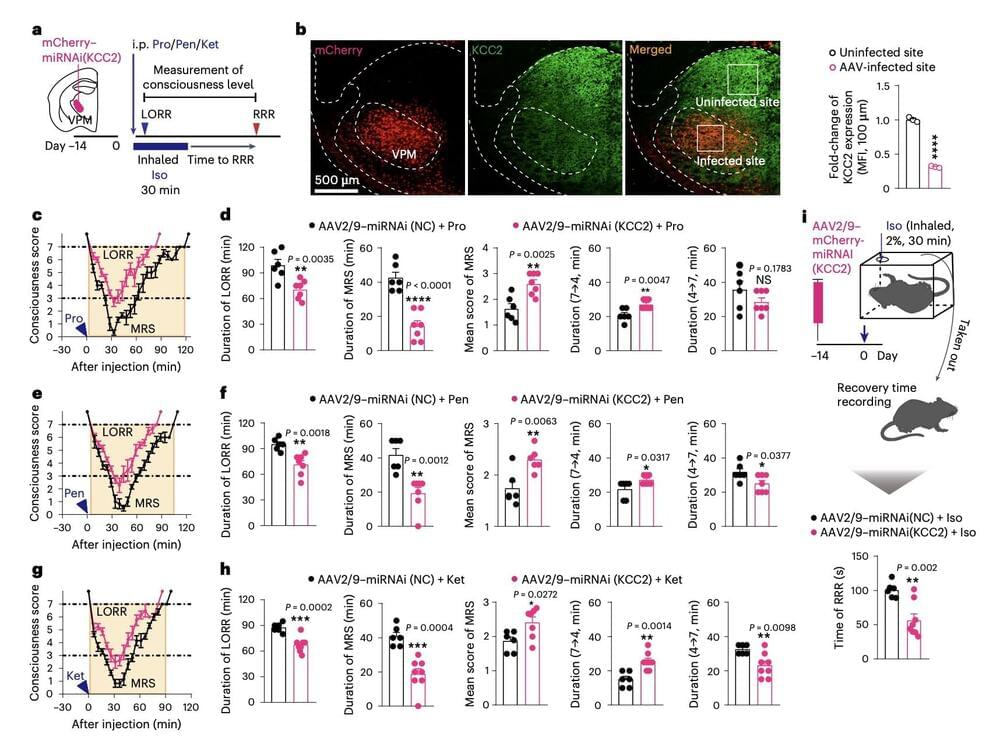Before undergoing surgeries and other invasive medical procedures, patients typically undergo anesthesia. Anesthesia consists in giving patients a class of drugs (i.e., anesthetics) that cause them to lose feeling in specific areas of the body (i.e., local anesthesia) or fully lose awareness during a procedure (i.e., general anesthesia). These anesthetics can be administered to patients via injection, inhalation, skin-numbing lotions, and other means.
In the past, doctors and medical researchers viewed general anesthesia as a passive process that could not be influenced or interrupted once anesthetic drugs were administered. More recently, however, studies showed that it is in fact an active brain process that can be experimentally controlled and acted on.
A research team at the Southern University of Science and Technology in China recently carried out a study investigating the processes underpinning brain states while under general anesthesia and those associated with the subsequent re-emergence of awareness. Their findings, published in Nature Neuroscience, highlight possible strategies that could help anesthesiologists to extend and deepen or shorten periods of anesthesia.










Comments are closed.